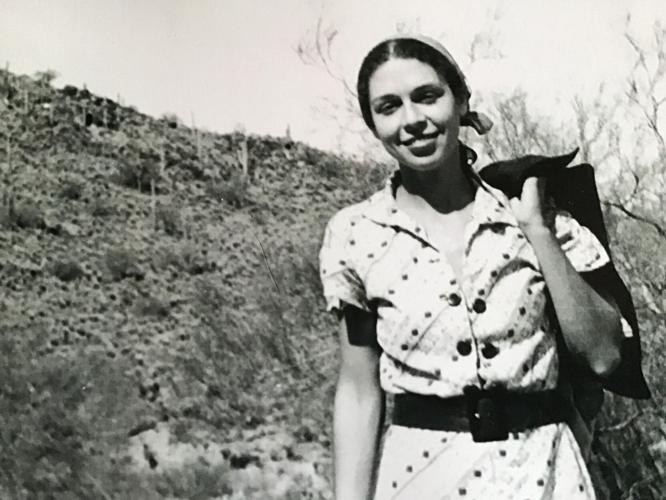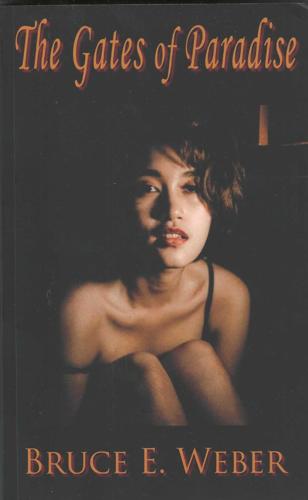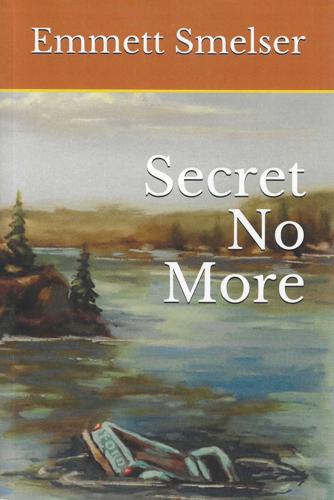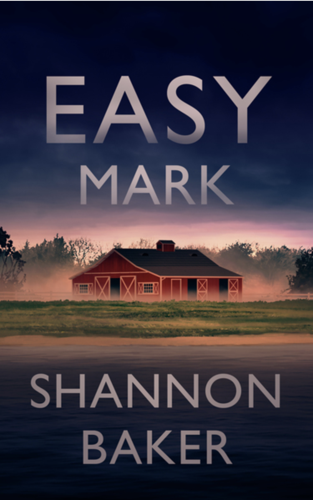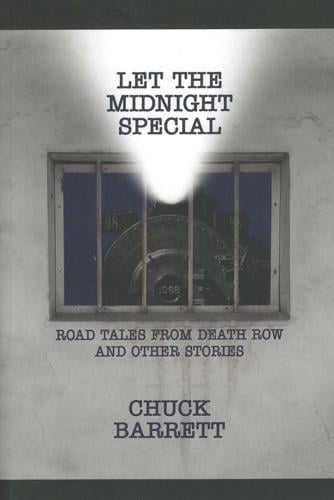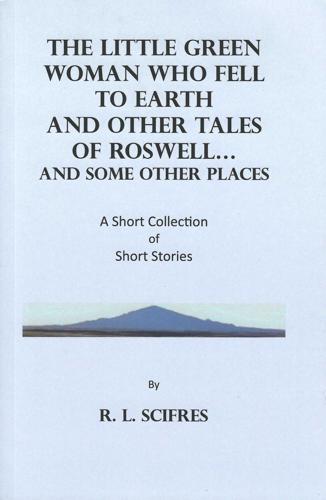“Letters to Helen from Julian Hayden” Edited by Bill Broyles and Steve Hayden (“Hayden Says” Press). Available at the Pima County Public Library or through the co-editor at bibroyles@aol.com.
In late summer 1977, 68-year-old Helen Pendleton Hayden, wife of Julian Hayden, desert archaeologist and excavation business owner, left for her final “journey.” A few days later, on Sept. 3, 1977, Julian wrote her a letter. He would then write his deceased wife practically a letter a day for over 20 years, until his own final “journey” — a total of perhaps 7,000 pages. This transcendent, poignant collection of Julian’s writing portrays love, loss, grief, friendship, the minutiae of daily life; the recreation and reflection on more than 40 years of marriage.
Their son Steve, and Tucson writer Bill Broyles — who also co-edited “Field Man: Life as a Desert Archaeologist” about Hayden (UA Press, 2011) — have selected 74 entries that cover from the immediate aftermath of Helen’s death to close to Julian’s.
The couple made an unlikely match: Julian was a blue-collar, self-trained archaeologist westerner; Helen, a Smith-educated, establishment easterner. Helen managed the business books and the household when Julian went on archaeological research trips.
Recounting friends’ visits, family news, their aging dog’s health, his personal emotional hitches, business affairs, the weather, the state of Helen’s roses, it could be said that Helen’s letters are Julian’s diary.
We can already see their affectionate, easy intimacy and interdependence from his first letter, “I do so want to visit with you, sit on the patio and watch the birds,” he wrote, “and just ramble on, as we did every evening, and be able to reach over and touch your lovely arm, and tell you I love you, and see you smile.” And, from the photographs, we know that willow-slender Helen Hayden had a glorious smile.
This is a remarkable work, tracing a remarkable commitment.
— Christine Wald-Hopkins
“The Gates of Paradise” By Bruce E. Weber (Stanfield Books). $15.99
In his latest novel, Tucson writer Bruce E. Weber toys with notions of sexual impulse, Catholic guilt, church hypocrisy and social and political mores. And he gamely explores the possible consequences of AI erotic gratification.
Houston bar owner Cornelius (“Corny”) Cobb has some heavy financial responsibilities. To keep his wife happy and his kids in pricy Catholic schools, he borrows a boatload of money from a loan shark, and sets up a robot brothel he calls The Gates of Paradise.
His beautiful, Chinese-engineered robots are irresistible: they look, sound, behave, even smell, like the most seductive human woman. They’re an immediate hit, so Cobb opens a second Gates, and then a third. The brothels are legal, but that doesn’t shield them from crooked cops, competing sex workers, politicians or Cobb’s family.
Weber surrounds Cobb with appealing secondary characters (a slovenly but smart female lawyer, thoughtful business partner, humane priest, beautiful Latina bar manager). And the central question reflects his partner’s observation: “Society is structured to control the male sex urge …,” he says. “It will be interesting to see what happens when an outlet is created that is beyond societal control.” That could impact happily-married, faithful, family-loving, Catholic Cobb. And it does prove interesting.
— Christine Wald-Hopkins “Secret No More”
By Emmet K. Smelser (Emmet K. Smelser). $14.95
Attorney Grant Russell leads an apparently perfect life — partnered with his father-in-law in a good law firm in a small Iowa town, happily married with two little girls; a church-going, Sunday-dinner-with-the-in-laws, country-club kind of guy with few worries. Well, except for the one worry that someone might discover he’d sent a dead meth dealer’s truck careening into the algae-laden water of a disused gravel pit. Truck, that is, complete with dead dealer.
That’s the background “Secret” of “Secret No More.” The foreground of this novel has Russell ferreting out the identity of a young woman killed in a New Mexico sky-diving incident, and finding next-of-kin for her 2-month-old baby. The novel opens with a New Mexico sheriff phoning Russell to notify him of the death of a “Sally Rose,” who’d listed Russell as her sole emergency contact. Russell doesn’t recognize the name, but — pressured to help place the baby — he recalls a long-ago client with the same initials, who’d asked him to file a will that she had already drafted. Opening the file, hoping to find names of family, he finds, instead, “Deliver immediately to FBI.” This, plus the news that the gravel pit is about to be drained, opens cracks in Russell’s perfect life.
Smelser, a 40-year veteran of Midwest journalism, who divides his time between Indiana and Southern Arizona, clearly knows his Midwest culture. This is his sixth novel, at least one before featuring Grant Russell. Given the few untied threads this novel ends with, we might expect to see Russell again. He’d be welcome.
— Christine Wald-Hopkins “Easy Mark”
By Shannon Baker (Severn River Publishing). $17.99, Kindle $4.99
Fans of thrillers featuring lawmen in the contemporary West (think Craig Johnson’s Longmire) will enjoy this series by Tucsonan Shannon Baker, set in Nebraska’s scenic Sand Hills. But be prepared for a new perspective: Baker’s lawman is a woman, holding her own in a traditional man’s world. Kate Fox is smart, tough, and ready to go toe-to-toe with the most nefarious criminals, but in unguarded moments she shows glimpses of vulnerability that make her the sort of engaging character you want to keep returning to.
In this fifth outing for the sheriff of Grand County, which publishes on Aug. 10, there’s trouble brewing at the Rocking L Ranch and Kate’s in the thick of it, having fished the body of the ranch’s unpopular ex-foreman out of the lake. Most people agree that death is an improvement for the vicious, unlikeable Buzz, but it presents a complication for Kate: his corpse was found submerged in her younger brother’s vehicle, and the reckless Jeremy is nowhere to be found.
Luckily, Kate is at her best dealing with complications, whether solving crimes, coping with the constant demands of her large and closely-knit family, or jousting with the sheriff of the neighboring county, who happens to be her ex-husband. And the complications mount quickly in this fast-paced, edge-of-your-seat book; Buzz is even more trouble dead than he was alive, and everyone seems to have something to hide, secrets that threaten to turn deadly.
Baker, a transplant from Nebraska, deftly channels the Sand Hills landscape intrinsic to the narrative. She is the author of two additional series as well as the stand-alone “The Desert Behind Me,” and received the Writer of the Year Award from the Rocky Mountain Fiction Writers in 2014 and 2017-2018.
— Helene Woodhams “Let the Midnight Special: Road Tales from Death Row and Other Stories”
By Chuck Barrett (Independently Published). $7.99, Kindle $2.99
On May 31, 1984, six death row inmates escaped from Virginia’s Mecklenburg Correctional Facility, the only such mass escape in death row history. The escape plan, although brilliantly conceived, was doomed to failure: the six escapees were recaptured and ultimately executed. Author Chuck Barrett, a lifelong activist with decades of involvement with the prison system, served as a volunteer civilian chaplain on Virginia’s death row from 1981 to 1985. He mined his experiences working with inmates to produce this fictionalized collection of interrelated short stories that reimagine the fugitives, their escape and its aftermath.
At the heart of these compulsively readable narratives are the inmates themselves. They are deeply damaged, each in his own way, victims of abuse, addiction, physical and mental illnesses, cognitive impairment and a flawed legal system that was never designed to work for them. Although the heinousness of his characters’ crimes is not treated lightly, Barrett also never dismisses their humanness. The torturous burden of their guilt follows them into their short-lived freedom; some display grace and surprising generosity. None of the inmates have brief or uncomplicated stories; as the battered wife of one victim observes, “… the truth is hard, and it’s hard to tell short.”
There is only one uncomplicated truth for Barrett: The death penalty is costly, and it doesn’t deter murder. The only thing it does effectively, he says, is to resolutely close the door on a future in which moral redemption might not have been an impossibility. Barrett, who lives in Tucson, is the author of fiction, poems and commentary articles.
— Helene Woodhams “The Little Green Woman Who Fell to Earth and Other Tales of Roswell... and some other places: A Short Collection of Short Stories”
By R. L. Scifres (Independently Published). $7.99, Kindle $5.99
Readers familiar with the extraterrestrial reputation of Roswell, New Mexico, will understandably assume that this collection of short stories includes an alien visitation or two; the puzzling murder in the first story about the little green woman, from which the volume takes its title, certainly appears to suggest that.
But for author R. L. Scifres, Roswell is a hometown — in fact, he was raised there himself — and for him it’s a place where people live and work and sometimes find solace. In the way of hometowns, it’s also a place to which people return to revisit their past, as in the story about the woman finds out more about her father than she ever knew when she comes back to town for his funeral; in another, a sailor home on leave answers for long-ago youthful indiscretions at a local honky-tonk.
These eight stories run the gamut from contemporary fiction to the supernatural, but most of them share the New Mexico setting that tips its hat to both the unique southwest landscape and the local, unmistakably New Mexican cuisine. Scifres, who now lives in Green Valley, is retired from Eastern New Mexico University/Roswell, where he was an instructor in psychology and sociology.
— Helene Woodhams


